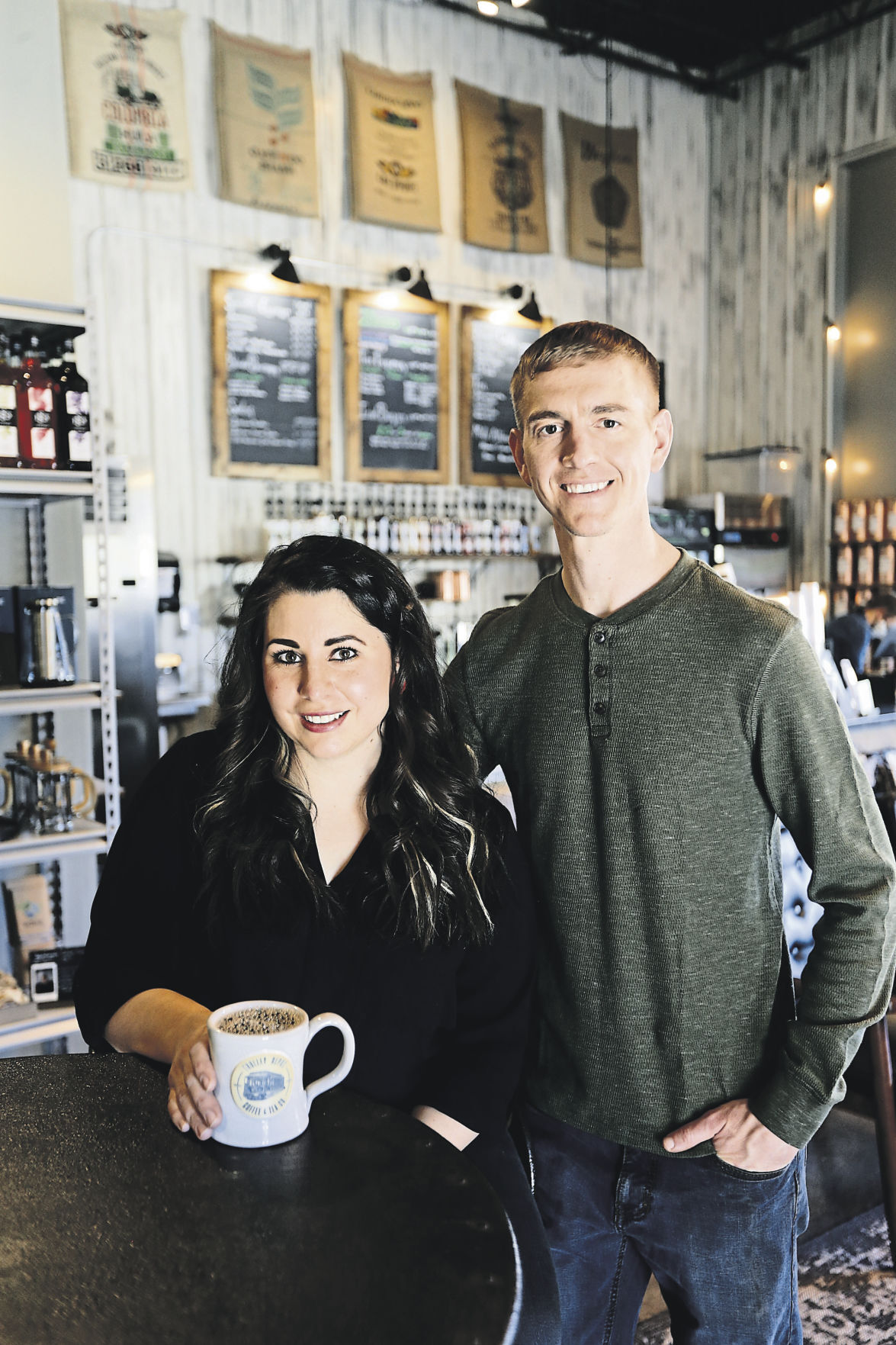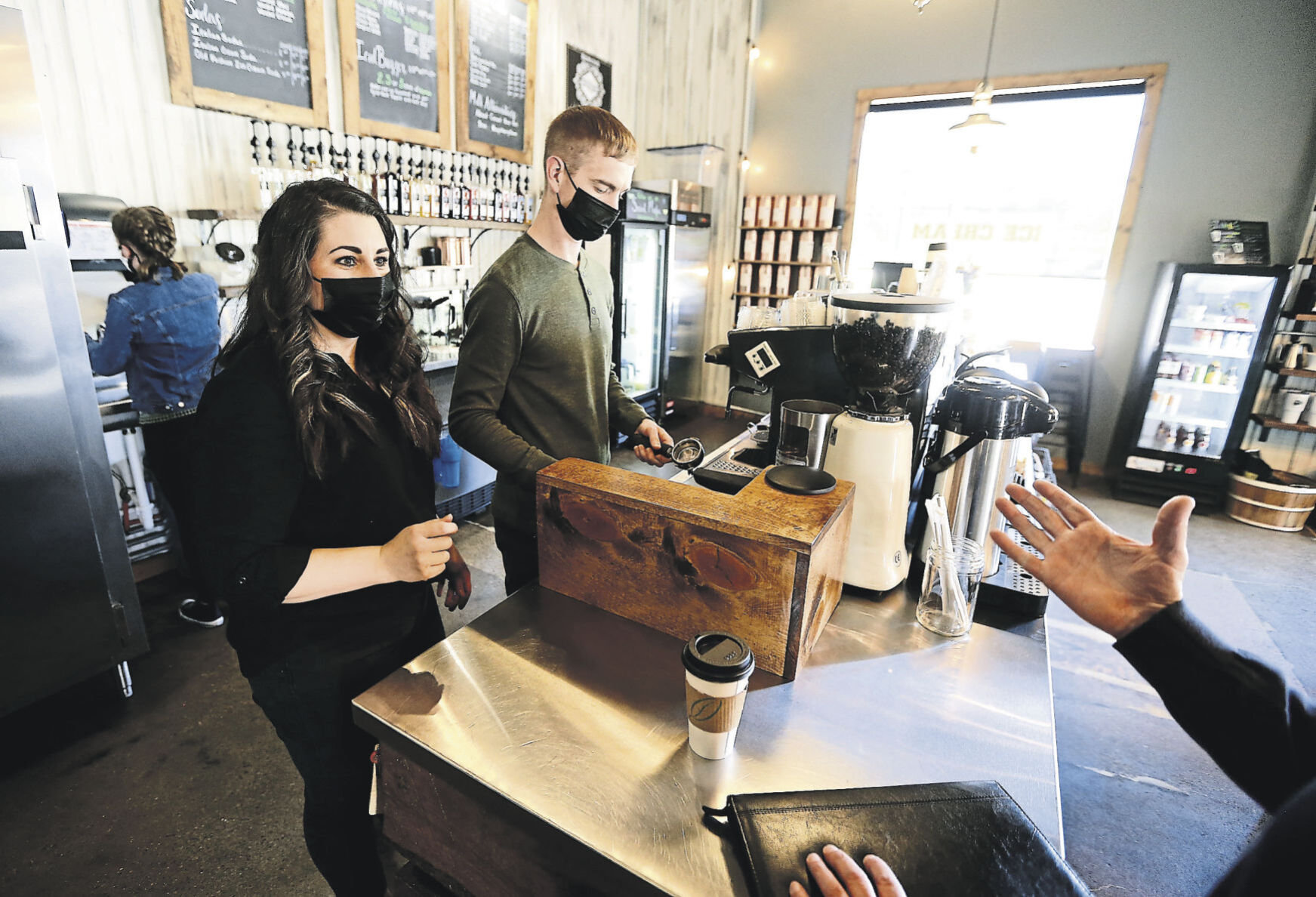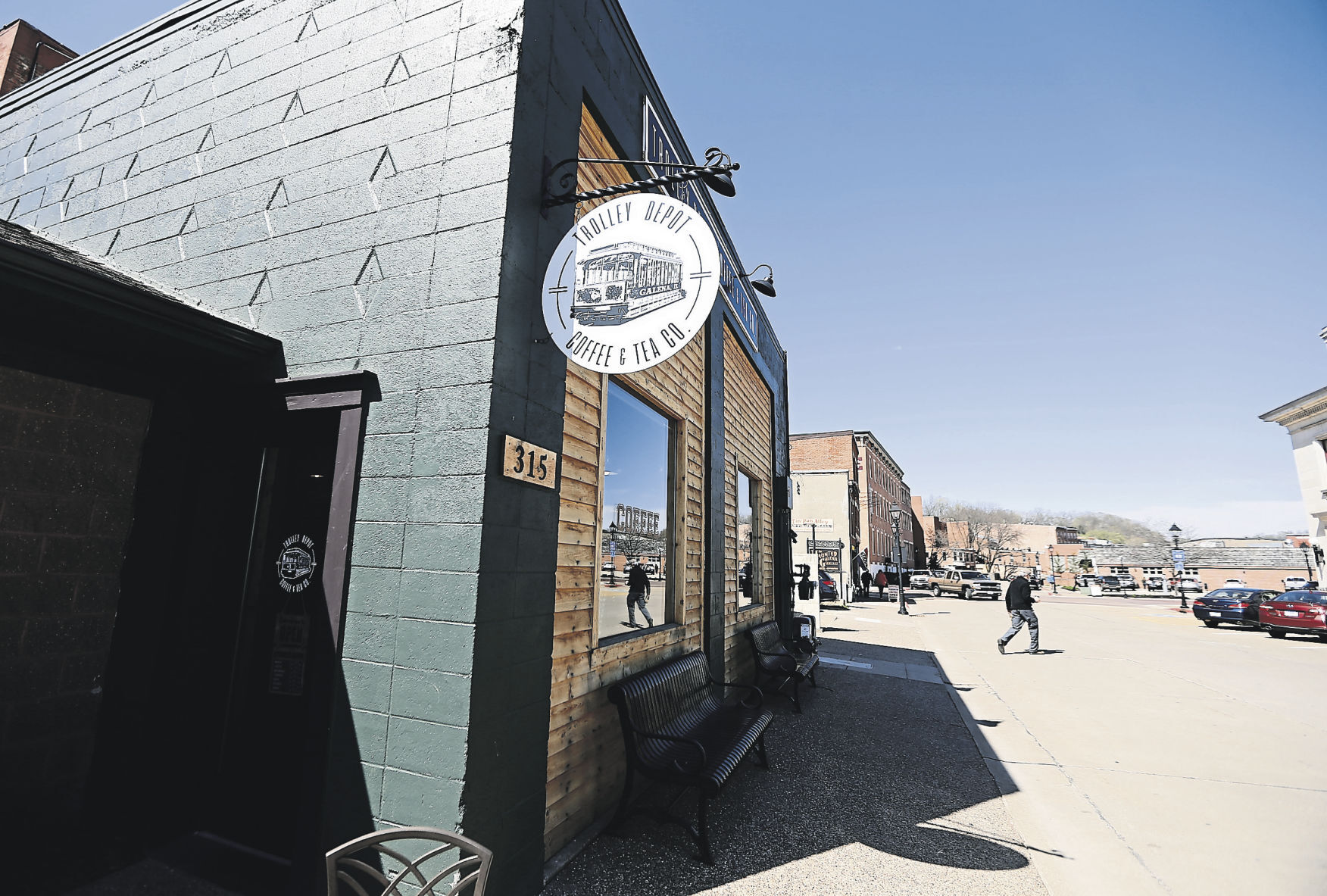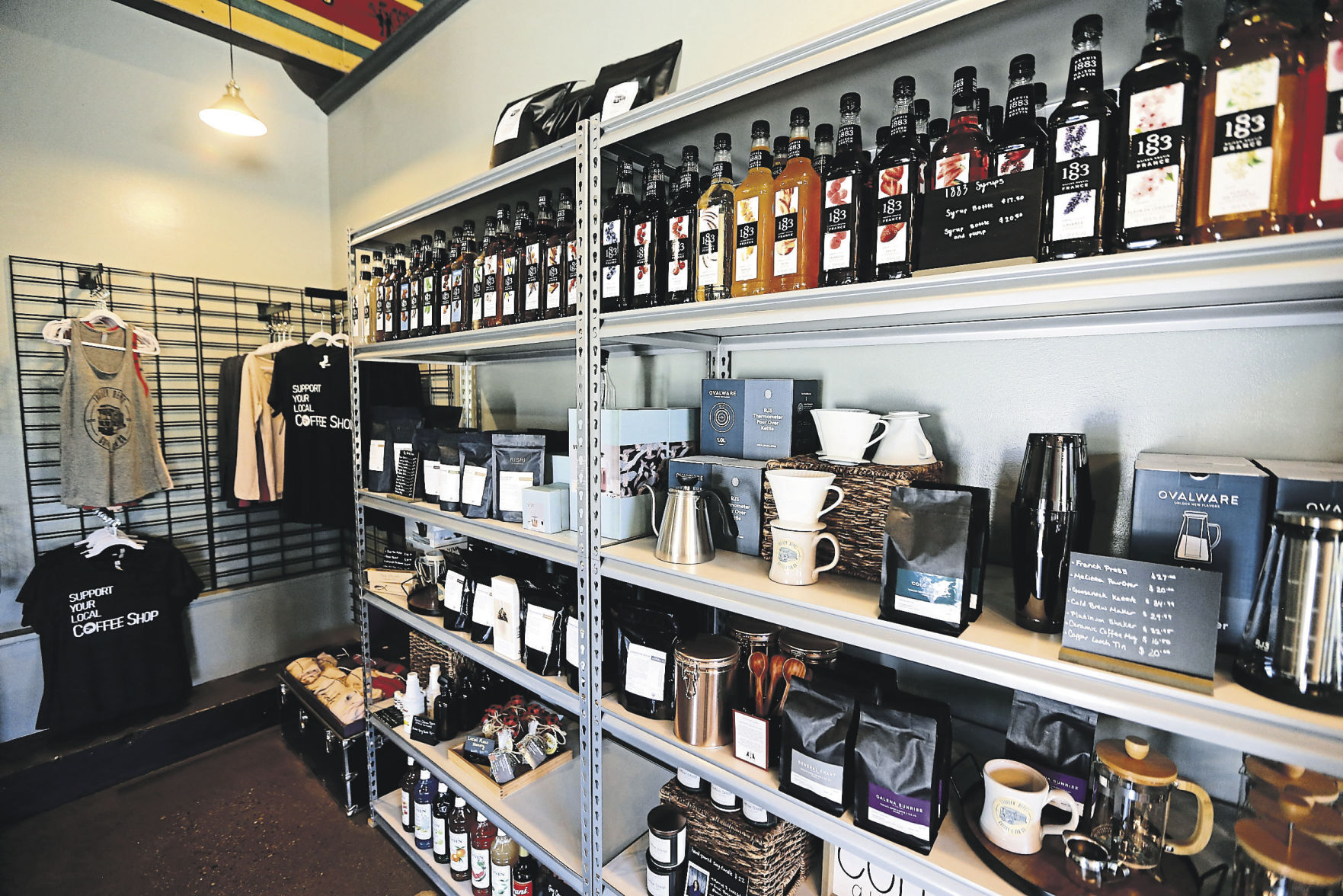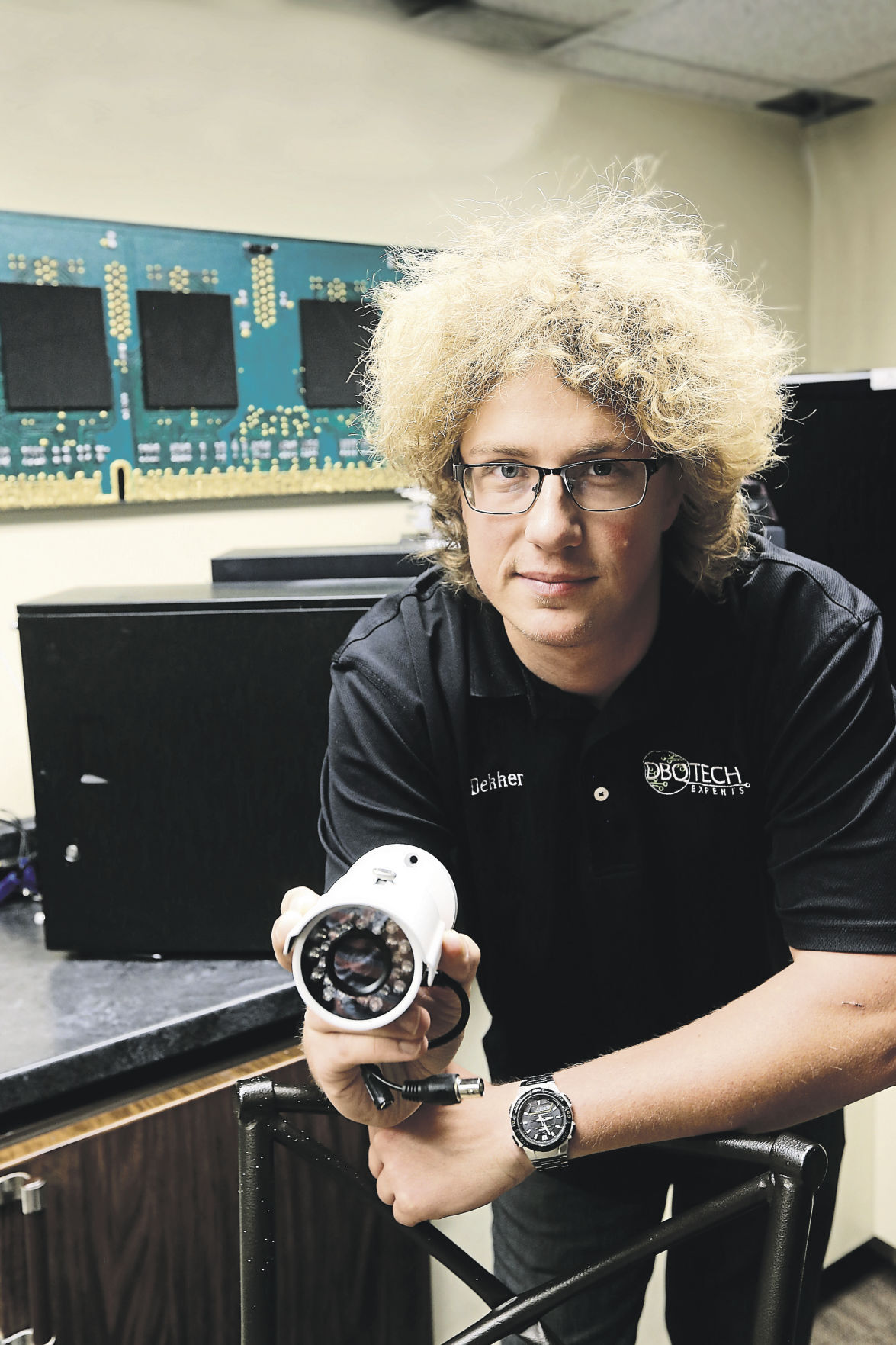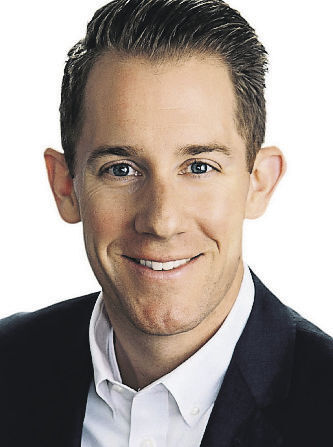The generation known as millennials is changing business ownership.
This group, ages 22 to 41, has a passion for bringing their entrepreneurial ideas to fruition in their way.
It was millennials, who long before the pandemic, were pushing for remote work options. And it’s the tech-savvy millennials who thrived while working from home during 2020 and 2021.
They also like flexibility in their work schedules. Rather than a 9 to 5 time frame, millennials prefer flexible schedules, and they allow their employees to have the same.
Businesses started by millennials often are started at home then moved to an office or storefront as the business expands.
Millennials, born between 1980-1994, became the largest generation in the labor force in 2016 and will make up 75% of the global workforce in 2025, according to information on BSR.org.
Millennials are starting businesses at a younger age than previous generations. According to a 2016 BNP Paribas Global Entrepreneur report, millennials are starting businesses around age 27; baby boomers statistically launched their business around 35 years of age.
Advice from a Commercial Banker
Starting a business is an adventure for all who have the vision to take that step.
“The more advice you can receive the better,” Tyson Leyendecker, market president/EVP at Dubuque Bank & Trust, said.
“Put together an advisory group of people that you can bounce ideas off of. This group should include your attorney, banker, CPA/accountant, suppliers and other owners outside of your market of the same type of business.”
Leyendecker said that commercial banking is not a “one-size-fits-all” process. “When working with a prospective business owner, we ask a core set of questions. Those questions include; what is your business plan, what is the value proposition and how are you going to compete?”
“We dissect and take a consultative response when looking at commercial loans. There are times when we have to say ‘no’ but we come up with actions for the prospective business owner to take such as other business loan options that are available.”
Leyendecker said that the length of time it takes to process and close a commercial loan differs with each customer.
For example, a manufacturing business loan would take longer than a law office because there are more details to setting up a manufacturer, including finding or building the property, purchasing equipment and setting up a supply chain.
Millennial Business Owners
Three tri-state millennial business owners provided responses to a series of questions to share their experiences in opening and operating a business.
Business name: Trolley Depot Coffee & Tea Co.
Owner’s names and ages: Corey, 35, and Joy, 31, Heller.
Business address: 315 S. Commerce St., Galena, Ill. 61036.
Description of the products/services available at your business: Coffee shop, specialty coffee and whole bean offerings, specialty espresso beverages, organic teas, ice cream and pastries. Launching Brew Methods: coffee experience nights in May 2021.
When did the business open?: May 2020.
How old were you when you started the business?: Corey, 34, Joy, 30.
When did you have the idea for the business?: We began seriously discussing it on our nine-year anniversary trip in June 2019.
What prompted you to start a business?: We didn’t like the projection we saw our life was on. Looking ahead at years of working for other people 40-plus hours a week wasn’t appealing. We wanted to be able to bring our kids up alongside us and create something our future generations could take over. We began praying and as we did, opportunities fell in line.
What did you have to overcome to start the business?: 2020, ha ha. But seriously, once we decided to commit to opening, we experienced a series of personal and financial battles. The projects were taking longer than expected and right when we thought we were set for smooth sailing, COVID hit.
We were in too deep to turn back so we just kept moving forward. Before deciding to go for it, we had to lay aside the fear of the unknown. We were essentially flipping our entire life upside down and if it worked, it would be awesome, if not, well, we just didn’t go there.
How did the first few years go?: We’re coming up on our first anniversary and we can honestly say “It was miraculous.” 2020 was absolutely not the best year to start a business, but the lessons we learned are priceless. We prayed a lot and saw ends meet in a way only God would do. We made it through and are stronger because of it.
Our goal was to be the locals’ coffee shop even though we are a tourist destination, and I think we achieved that. We have been able to expand our offerings, train an amazing team of baristas and maintain great customer service! We’ve got some really neat things planned and are excited to see what the future holds.
What lessons did you learn during the first few years and how did you apply these lessons?: Lesson: You can’t make everyone happy, and that’s just fine.
Application: We started trying to please 100% of our customers. It didn’t take long to learn that no matter what you do, someone will be upset. So instead, we focused on caring for our employees and making decisions that will have the best impact on our local/recurring customers.
Lesson: Knowing who you AREN’T is the most important step in defining who you ARE.
Application: It’s easy to focus on the big corporations and other businesses in town and be discouraged by all the things you can’t do. We had to reframe our thinking and laser focus on what we do best. For us that’s coffee and tea. We’re not a restaurant, or dessert bar, or juice bar or retail store. We supply amazing coffee and tea to Galena and when we focus on just that, we can provide fast, efficient and friendly service.
What challenges did you face during the COVID-19 pandemic?: Fear. Our opening was delayed by a little over a month. In that time, we found out we were expecting what would be our fifth baby. When we opened, we had just gone six months without a paycheck and there was so much riding on our business succeeding. Every decision we made was tainted with fear of a backlash.
Social media trolls. Unfortunately there will always be those people who feel the need to be nasty when you don’t run your business how they think you should, especially through a pandemic year that there was no rule book for. People only see the final decision, but they typically have very little understanding of all of the variables that go into that decision.
For everyone that lashed out hate, we were graced by 10 who showed up with support and love and that was really encouraging. But the nasty messages keep you up at night, they are difficult to ignore when you want to justify your actions.
COVID closures. During the summer we had to close the coffee shop for a 10-day period. We had an employee who tested positive for COVID-19 and the health department put all but one of our employees in quarantine. Thankfully no one else got sick — but we were all just sitting at home healthy while our doors remained closed. We lost a lot of money and product in that 10 days. When we looked into government assistance, we didn’t qualify for any of the grants because we had only been operating for a couple of months and couldn’t prove a loss.
Advice for future business owners: Expect obstacles and create the way around them — enjoy the easy seasons but know that the hard times are what will refine your business and make you stronger — pay attention in those hard times and learn how to become better.
Protect your personal life and build in times to rest. If you lose your family or health, your business won’t matter much.
Learn as much as you can from similar successful business models before creating your business plan. Don’t try to reinvent the wheel, just put your personal spin on it.
Business name: DBQ Tech Experts.
Owner’s name and age: Dekker Pfab, 28.
Business address: 2615 Dodge St., Suite 2, Dubuque, Iowa 52003.
Description of the products/services available at your business: Computer repair and sales, business services including MSP, Server/Workstation, IP phones and security solutions, in-home repairs and consulting.
When did the business open?: September 2014.
How old were you when you started the business?: I began providing services at age 16, then created the LLC at age 21.
When did you have the idea for the business?: When I was 8 years old, I wanted to have a computer business.
What prompted you to start a business?: At age 13, I bought a computer at a garage sale for $5. The man at the garage sale also gave me a couple of boxes of computer parts. I rebuilt the computer and sold it on Craigslist for $70. Later, I acquired two broken computers for free, rebuilt them and sold them each for $70.
In addition, I had people pass my phone number around to others wanting me to help with computer problems. Realizing that there was a demand for what I did prompted me to start a business.
What did you have to overcome to start the business?: Patience (not that I have fully overcome that!). Growth takes time. Sometimes it might feel you are not making enough money to stay in business, but as you become established and learn your business, you can be successful.
How did the first few years go?: Gross sales, 100% growth first two years and yearly 35% growth since. Expanded from parent’s basement to small office then expanded to larger office to be more welcoming to customers. Definitely learned how to work with clients and learned to diversify my skillsets to different businesses and computer applications.
What lessons did you learn during the first few years and how did you apply these lessons?: I learned how to work with clients with various expectations and to be accommodating with their IT needs. Some customers are very easy to work with and will pay top dollar while others can be a challenge and have very little budget.
Biggest takeaway is overcoming the rare instance of an upset customer or a customer that you cannot accommodate. If you know you are doing good work, and your clients agree, you can’t let one bad experience deter you from continuing. It is completely true what they say, 90% of your problems come from 10% of your clients (the saying was 80/20, but I can assure you that has changed).
What challenges did you face during the COVID-19 pandemic?: Surprisingly, but not surprising, COVID-19 did have a temporary negative impact on our business. Residential products and services thrived, while large capital projects with businesses were at a significant low compared to 2019.
While our gross sales overall increased from the previous year, our net income was at a loss due to our increased staff and overhead. To get through, I was reminded of businesses that survived the Great Depression, which are now some of the largest companies in the world.
I knew that if I can push to keep my entire staff, accept the losses and keep going that it would work out in the end. Already in 2021, we are well positioned to not only make up our losses, but go even further. Programs such as the Dubuque Initiatives loan, SBA Disaster Loan and PPP were great lifelines to get us through 2020.
Advice for future business owners: I learned this in 2019; find your buyer first. Starting off, I did not push my services on anyone. They requested my service. If you come up with a product or service you think would be successful, do not spend a penny on it until you have confirmed there are customers ready to pay for it.
You can have the best idea in the world, but if there’s no one at your door with cash wanting it, then it’s not worth pursuing.
Business name: Fourge Social.
Owner’s names and ages: Chad Chandlee, President/COO, 47; Christine Melaas, director of sales and operations, 34.
Business address: 4050 Westmark Drive, Dubuque, Iowa 52001.
Description of the products/services available at your business: Social media marketing.
When did the business open?: January 2016.
How old were you when you started the business?: Chad, 42, and Christine, 28,
When did you have the idea for the business?: 2015.
What prompted you to start a business?: Chad recognized a need for a custom social media agency while looking to hire a social media manager for Kendall Hunt Publishing. He saw there were a variety of agencies that focused on marketing with social media as an add-on or more automated services.
Chad had an idea to create a company that tailored social media strategies to each individual business and not just industry-wide or one-size-fits all approach. The custom model we adapted came from the custom publishing approach Kendall Hunt Publishing Co. has used for more than 76 years.
What did you have to overcome to start the business?: Fourge Social had the opportunity to be owned by Kendall Hunt Publishing Co. and be part of the Westmark Enterprises family of companies in the Dubuque community. Therefore, we did not have to overcome the typical startup growing pains of creating an accounting or human resources department.
Everything already was in place with Westmark, a back-office support company for businesses, for us to use. Our main challenge was to decide how we would structure the company in terms of staffing as we started without an idea of how many clients we would bring on and how quickly and really what the business model would look like.
How did the first few years go?: In year one, we were awarded Most Likely New Company to Succeed by the Dubuque Area Chamber of Commerce. We grew our company from two full-time employees and mainly local area clients to a team of eight full-time employees by 2019, two interns every semester and clients in six states and more than 50 industries.
Year one most of our clients were cold calls or using our networks to set up meetings. After three years, we began to see more client referrals and due to businesses seeing the need to invest in social media, people reached out to us for our services.
The Fourge team has spent a lot of time investing hours into training the team on how to create and execute effective social media strategies for clients. In 2018, we became the first (and to my knowledge only) fully certified agency of social media strategists from the National Institute of Social Media. We’ve addws a full-time graphic designer who has elevated our team’s creative assets and allowed us to also bring on a graphic design intern.
We created an internship program that has given us many of our full-time employees and given the team a new perspective while they held their intern position.
Our team worked (and still does) hard to show that we are a small, but mighty group of social media experts dedicated to helping our clients #FourgeAhead using social media as a way of communicating with their target audience and turning those engagements into lasting relationships.
We learned how to sell what we do without “selling.” We are able to show the need and value of our services with real case studies and showcase our expertise.
What lessons did you learn during the first few years and how did you apply these lessons?: In social media you never stop learning and I think that is what we have love/hate about this work. There was, and still is a lot of trial and error as we grow along with the constantly evolving social media industry.
Our packages have evolved to bring more focus into the aspects of social media where our team can be most effective helping our clients to reach their goals and show the value in all we do from a post, to a video ad and everything in between.
What challenges did you face during the COVID-19 pandemic?: I would call them opportunities instead of challenges. The pandemic catapulted the people who were not going to invest in social media for another five years into doing so immediately because it served as their lifeline to stay connected to customers.
We have seen existing clients add on to their existing packages to replace in-person events or engagements. We have had to revise our packages for a third time in order to further show the value in what we do for a business and educate businesses on the constant work that goes into social media management.
Advice for future business owners: When I stop to really think, the following are the three things that I believe always have stuck with me and become a part of the core of Fourge Social.
1. Listen to your mentors and the people who already have been through the journey you will embark on. Take time to plan. It is so easy to get excited about launching a new idea and bringing it into fruition, but planning to see an idea out thoroughly can be all the difference between succeeding and not.
You do not have to take everyone’s advice or do everything they all tell you to do. Take pieces of it to craft your way of managing and running a business. Chad knocked on my office door one day in August 2015 and offered me an opportunity of a lifetime that I will never forget.
From day one of asking me to turn his idea into a business, he trusted me and hardly ever told me how to do anything in the company because he understood that I and the team knew the business. However, when he does talk, I listen because there is a lot of truth and valuable years of experience in his words to learn from.
2. People are everything. Never ever forget this. The people you choose for your team are choosing you, too. They are the minds and hands who keep your passion and purpose working. Foster their curiosity, build their confidence, give them credit when credit is due, encourage new ideas and give them permission to fail.
Learn from them because at some point they know more about the work than you do when you focus more on the business than in it. This is also true of the people who hire you as a service or choose your product. Remember they are choosing you over someone else. That means you owe them the best customer service and quality of communication, honesty and work you possibly can.
3. You have to make mistakes. The true lessons are in the way we recover from a mistake or failure. These are the opportunities to change and grow our business (and ourselves) in ways we never would have thought possible before.
When I was an account manager at Kendall Hunt before starting Fourge Social, my manager, Ray Wood, told our team something that has and always will stick with me. If we made a mistake and went to him about it his first answer would be, “OK, what are you going to do to fix it? Fix it and move on.”
There was no dwelling on the issue and no hand-holding. He advised us as much as needed, but his approach gave us the courage and confidence to amend what happened and keep doing our jobs a little better than before. This made me a better employee and eventually, I believe, a better manager myself.


